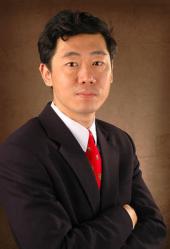

9:00 am EDT - 12:30 pm EDT
Past Event
9:00 am - 12:30 pm EDT
1775 Massachusetts Avenue NW
Washington, DC
20036
As China transitions from an economy driven by exports to an economy driven by consumption, the effects are being felt worldwide. In spite of this economic “new normal,” China has also become increasingly active in seeking a role in global governance as exemplified by the recent establishment of the Asian Infrastructure Investment Bank and the “one belt, one road” development strategy. On the other side of the globe, the state of the U.S. economy remains uncertain, breeding serious concern regarding future U.S. economic policies.
On July 21, The John L. Thornton China Center at the Brookings Institution brought together key insiders from the policymaking communities in China and the United States to explore the issues raised by China’s rise and economic transition. ![]() Follow @BrookingsChina to join the conversation.
Follow @BrookingsChina to join the conversation.
9:00 am

9:15 am
10:45 am
11:00 am


Tanvi Madan
February 26, 2026

Bonny Lin, Thomas J. Christensen, John Culver, Jonathan A. Czin, M. Taylor Fravel, Allie Matthias, Joel Wuthnow, Brian Hart, Suyash Desai +4 more
February 24, 2026

William A. Galston, Ryan Hass, Patricia M. Kim, Melanie W. Sisson, Constanze Stelzenmüller, Thomas Wright, Miles Yu +2 more
February 18, 2026